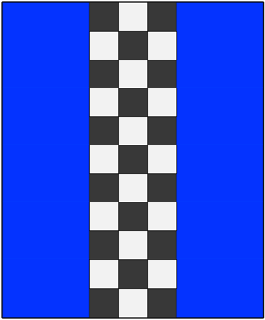Its new homelab time. And with that, potentially a new OS time too.
I currently am very happy with Debian and Docker. The only issue is I am brand new to using data redundancy. I have a 2 bay NAS I’ll use, and I want the two HDDs to be in raid 1.
Now I could definitely just use ZFS or BTRFS with Debian, and be able to use Docker just like I do currently.
Or I could use a dedicated NAS OS. That would help me with the raid part of this, but a requirement is Docker.
Any recommendations?
Unraid and Truenas are pretty popular. Openmediavault is less popular, but a pretty simple system based on Debian.
Generally, I think it is better to use a general server OS like Debian or Fedora instead of something specialized like Proxmox or Unraid. That way you can always choose the way you want to use your server instead of being channeled into running it a specific way (especially if you ever change your mind).
Proxmox ZFS with plenty of ram. (ZFS is ram heavy)
I run Debian with zfs. Really simple to set up and has been rock solid for it too. As far as I can tell all the issues I’ve had have been my fault.
ZFS looks like it uses a lot of RAM, but you can get away without it if you need too. It’s basically extra caching. I was thrilled to use it as an excuse to upgrade my ram instead.
Mdadm has a little more setup then zfs, as far as I’m concerned. You need to set your own scrubbing up whereas zfs schedules it’s own for you. You need to add monitoring stuff for both though.
I’ve considered looking into the various operating systems designsd for this, but they just don’t seem to be worth the effort of switching to me.
I can also recommend zfs on debian. Even if you only using two disks you will be still protected from bit rot.
Any recomended monitoring solutions? Or just proxmox and grafana?
I can recommend dockprom. It comes with grafana preconfigured.
Oh cool!
Bog-standard Debian with LVM. LVM can also do RAID, but you could also do mdadm below LVM if you prefer. Keep it simple.
Not as powerful as btrfs or zfs
ZFS isn’t built-in. I don’t know enough about btrfs to recommend it.
Unraid!
Honestly, from your description, I’d go with Debian, likely with btrfs. Would be better if you had 3 slots so that you can swap a bad drive but, 2 will work.
If you want to get adventurous, you can see about a Fedora Atomic distro.
Previously, I’ve recommended Proxmox but, not sure that I still can at the moment, if they haven’t fixed their kernel funkiness. Right now, I’m back to libvirt.
I was in a similar boat. Initially, I ran debian with docker but later on decided to check out unraid. It’s pretty easy to get setup, and you have a lot of docker containers pre-configured, so you can just click and install. I have it notify me whenever something goes on with it, but outside of that, I don’t tinker much with it.
Only two weird things about it though…
-
You dont install unraid. Instead, you run it through a usb. More specifically, the usb has a specific config that’ll then load everything to your memory.
-
Recently, they redid their pay structure so not too familiar with the changes but you do have to pay for unraid.
-
Definitely use ZFS for the data volumes in order to avoid silent data corruption. If you don’t use separate drive for the OS, then you need to look into ZFS on root.
Or XFS.
XigmaNAS









